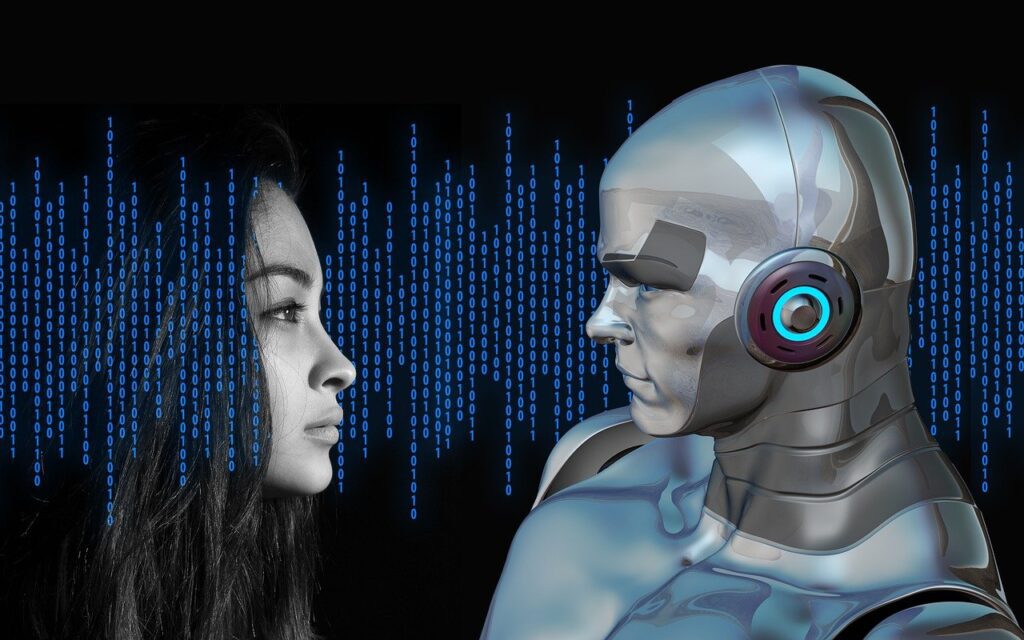The current state of artificial intelligence (AI) in creative fields has shown immense promise, igniting a quest to explore its future implications and possibilities. As AI evolves and matures, its potential for transforming creativity becomes increasingly apparent. This article delves into the future of AI and its profound impact on various creative domains, discussing technological advancements, the augmentation of human creativity, emerging creative professions, ethical considerations, and speculations on the future landscape.
The Evolution of AI in Creative Domains
AI has made significant contributions to creativity, from AI-generated music compositions and artwork to automated news writing. These accomplishments highlight the capabilities of AI systems to emulate human creativity and produce impressive outputs. However, it is crucial to recognise the limitations of AI and the importance of maintaining human involvement in creative endeavours in the digital sphere.
Advancements in AI Technology
The rapid advancements in AI technology catalyse pushing the boundaries of creativity. Machine learning and deep neural networks have revolutionised the ability of AI systems to learn from vast amounts of data and generate novel insights. Natural language processing and understanding have enhanced AI’s human language comprehension, enabling more sophisticated interactions and creative applications. Furthermore, the emergence of generative models has facilitated the creation of AI systems that can generate original and imaginative content.
Areas in AI Technology Advancements:
- Machine learning and deep neural networks: Revolutionising AI’s ability to learn from data and generate insights.
- Natural language processing and understanding: Enhancing AI’s comprehension of human language and enabling sophisticated interactions.
- Generative models: Facilitating the creation of AI systems that generate original and imaginative content.
- Quantum computing: Potential impact on AI creativity through increased computational power and optimisation algorithms.
- Cross-disciplinary research: Collaborations between AI researchers and creative professionals to push the boundaries of AI in creative domains.
- Ethical considerations: Addressing issues such as bias, fairness, transparency, and privacy in AI-powered creative systems.
AI and the Augmentation of Human Creativity
Rather than replacing human creativity, AI serves as a powerful tool for augmenting and amplifying it. Collaborative creativity is becoming increasingly prevalent, with AI acting as a partner to human artists, musicians, and writers. This collaboration enables the exploration of new artistic possibilities, pushing the boundaries of creativity beyond what humans can achieve alone. Additionally, AI streamlines creative processes by automating repetitive tasks, freeing time and energy for deeper exploration and ideation.
Creative Professions in the AI Era
The integration of AI into creative professions has transformative implications. While there may be concerns about AI displacing human creators, the future will likely see new roles and opportunities emerge. AI-augmented creative professionals will harness the power of AI tools to enhance their work, enabling greater efficiency, innovation, and scalability. However, developing interdisciplinary skills will be crucial for navigating this evolving landscape and staying relevant in a world where AI and creativity intertwine.

Ethical and Societal Implications
The future of AI in creativity raises important ethical considerations. Bias in AI-generated content is a critical concern that needs to be addressed to ensure fairness and inclusivity. Additionally, questions surrounding AI-generated works’ ownership and intellectual property rights require careful examination. Responsible development and utilisation of AI in creative domains are essential to mitigate potential risks and foster a sustainable and ethical creative ecosystem.
Speculations on the Future of AI and Creativity
Looking ahead, the future of AI and creativity is filled with possibilities. AI may serve as a tool that empowers individuals across various creative disciplines, enabling them to unlock new realms of imagination. Alternatively, AI systems could evolve to become co-creators, actively participating in the creative process alongside humans. Even the tantalising prospect of AI systems achieving independent creativity gives rise to new forms of artistic expression and immersive experiences.
Final Thoughts about the Future of AI
The future of AI and creativity is a realm of boundless possibilities. As AI technology advances, it can potentially transform the creative landscape in profound ways. By embracing the augmentation of human creativity through AI, we can unlock new dimensions of artistic expression, streamline creative processes, and foster innovation across diverse domains. As we move forward, it is vital to approach the future of AI and creativity with responsibility, ethics, and a commitment to preserving human values, thereby shaping a future where humans and machines coexist as creative collaborators.






